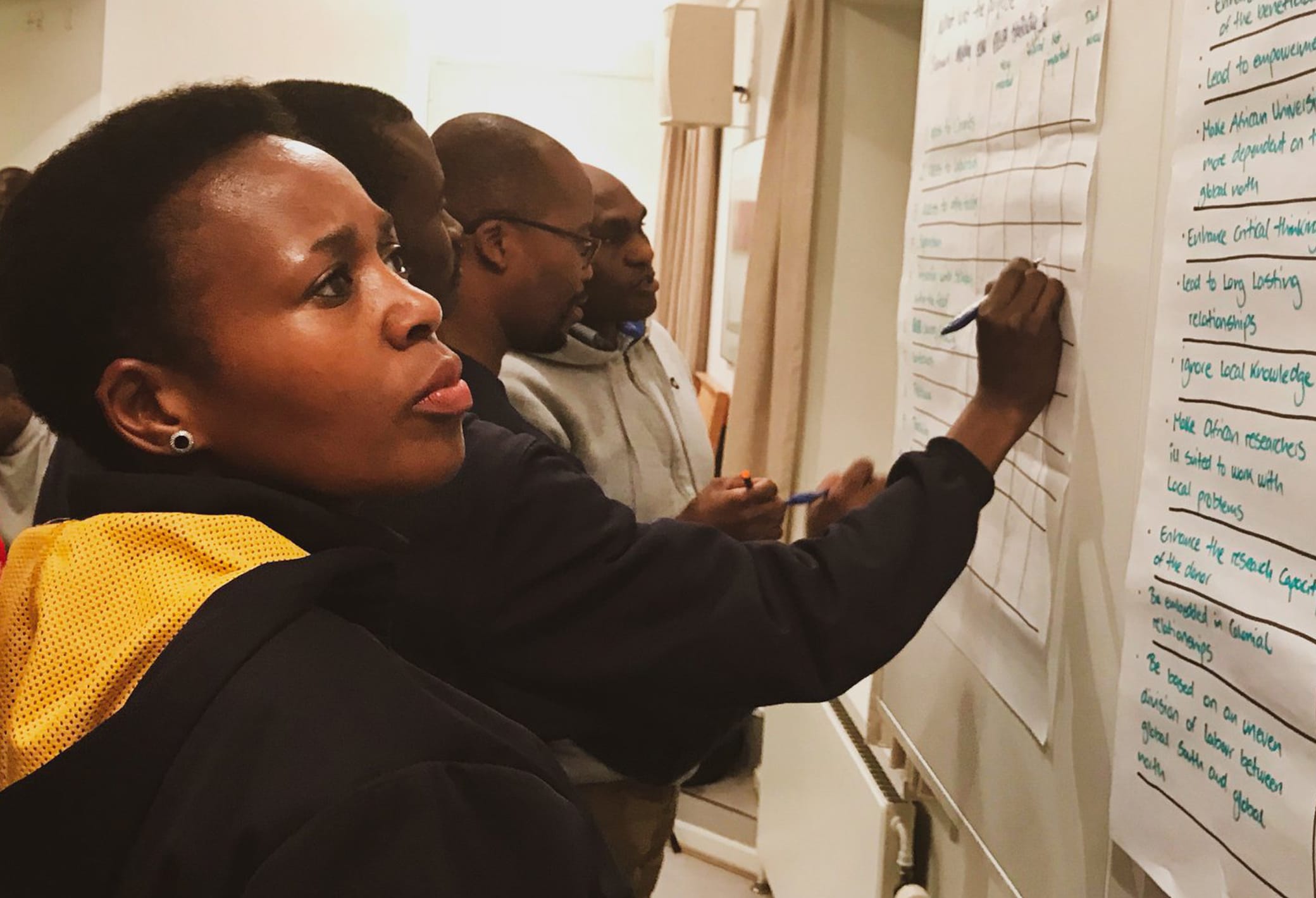Opportunities, challenges – and bad weather
03-06-19

“Opportunities, challenges – and bad weather” presents the results of a retrospective study of the experiences and reflections of African researchers involved in Danida supported research capacity building projects over the past three decades. The study, that is the first of its kind covering the Danida supported research projects in all of Africa will be launched on 27 June 2019
By Bente Ilsøe
On 27 June 2019, we will be launching “Opportunities, challenges – and bad weather”, a report that shares the voices and reflections of African researchers involved in Danida supported research capacity projects over the past three decades. The report was written by Lene Møller Madsen, University of Copenhagen and Hanne Kirstine Adriansen, Aarhus University is based on the results of 15 qualitative interviews and a questionnaire survey where almost 300 researchers out of the 500 approached responded.
The report confirms the impression we have always had at Danida Fellowship Centre: the vast majority of the researchers who receive Danida support and who collaborate with Danish researchers and research institutions make the most of the opportunity that they have been given. They appreciate the facilities and cooperation available in Denmark. They are very positive about what they have learned in Denmark and its impact on their personal development and empowerment. They appreciate the flat social structures in Denmark, the critical thinking approach and their cooperation with their Danish partners.
Generally speaking, their personal relationships and interaction with Danish researchers continue long after the end of the projects. This often leads to joint publications and funding applications, important milestones in the researchers’ careers. The constructive working relations make unbalanced power relations between the Global North and the Global South less pronounced. The fact that the commitment of Danish researchers goes way beyond purely research collaboration is much appreciated by the Africa researchers as this becomes the basis for the long-term relationships.
The researchers educated through the projects benefit their countries: almost all of the researchers are active in local development and only 1% of the respondents are unemployed. The majority are employed at universities where they continue their research and publish at international level, or in the public sector where some still conduct research. Others are no longer involved in research but hold important positions in society, due to their academic and intellectual skills. The value of being trained to think critically, to work independently and to share knowledge was not lost.
When the African researchers leave Denmark, they take with them a mindset that includes a notion of what it entails to be a good academic as well as other values. Hence, they act as ambassadors for Denmark. The often mentioned challenge they face during their stay in Denmark is getting used to the Danish weather.
Overall, the report expresses a very positive perception of research capacity building amongst the African participants. The authors asked for critique of the programmes in relation to power and the politics of knowledge but it was seldom mentioned.
Go back to our stories